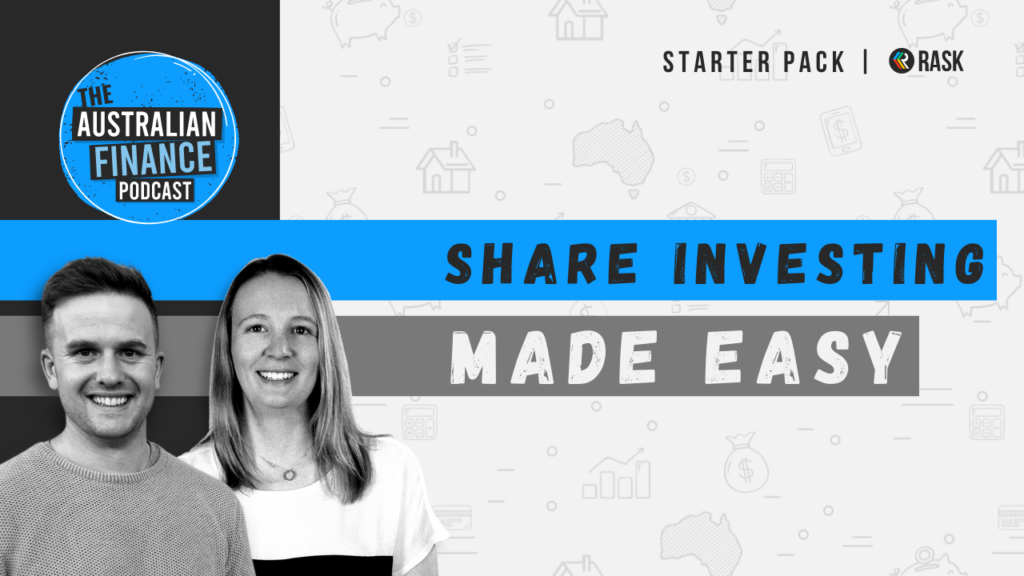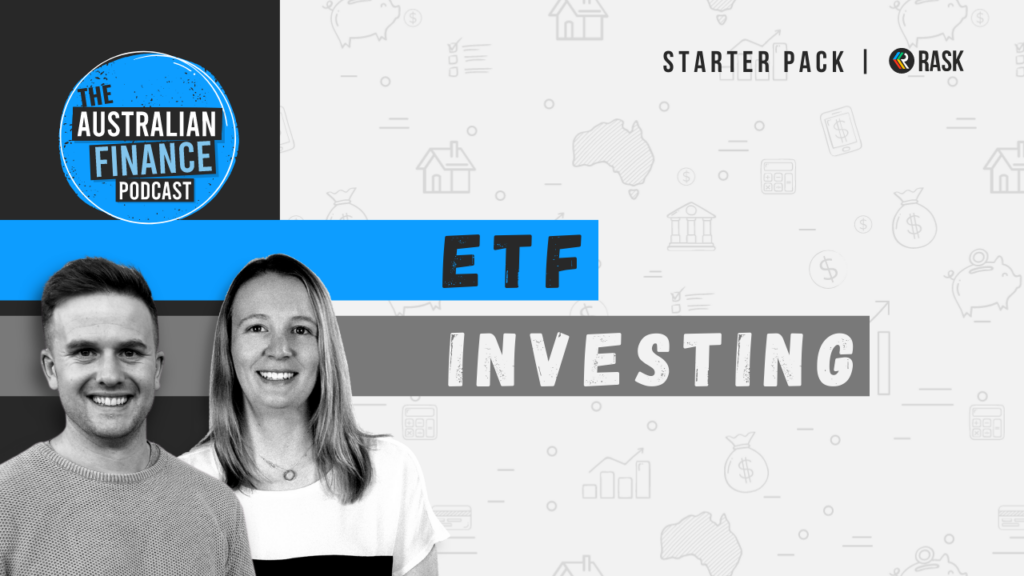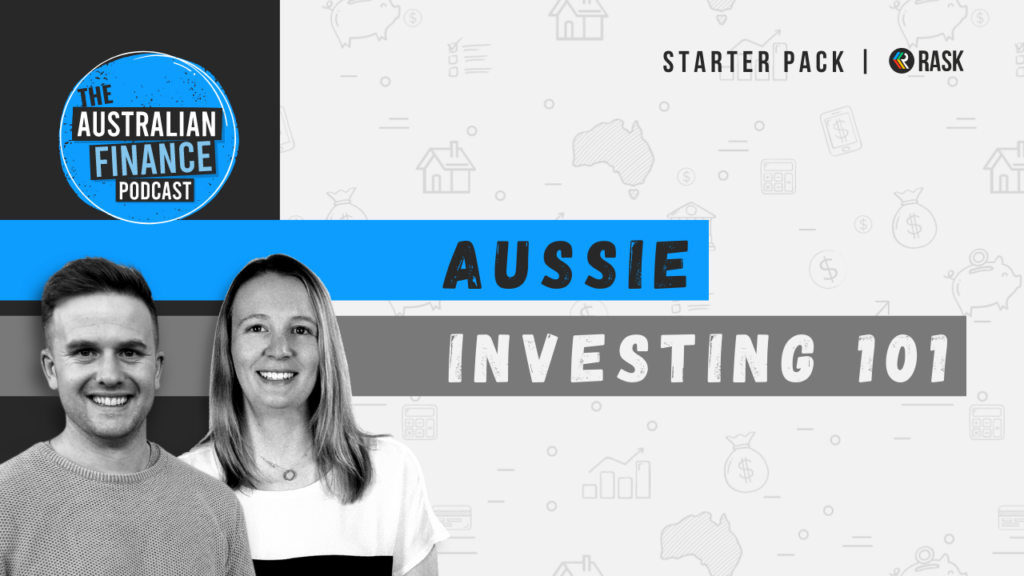⚠️ Please note this research report was first released on June 4th, 2018. This report will be updated in late 2022 / early 2023.
An Apple Odd Spot
Apple Inc is the USA’s largest company by just about every measure you can think of — it’s worth more than $930 billion today (AUD 1.22 trillion). You could buy Commonwealth Bank of Australia (ASX: CBA) 10 times over with that amount of cash.
Apple was founded by Steve Jobs (the creative wizard), Steve Wozniak (the technical genius) and a guy named Ronald Wayne (the finance / back office guy). Most Rask Invest members will know of Jobs and Wozniak. But Ronald Wayne is a name many would not have heard, and there’s a good reason for that.
When Apple started, Wayne owned 10% of the business but he shockingly sold his shares for just $800 12 days later.
Let’s imagine owning and selling 10% of Apple.
The Apple.
Now worth hundreds of billions of US dollars.
Why on earth did Wayne do it?
On his Facebook page, Wayne describes selling 10% of Apple as, “character building”.
Wayne sold because of the financial risks. He was the ‘mature’ person with a house and family. Wozniak and Jobs were in their early 20’s, broke and had nothing to lose.
“Aside from any immediate apprehension in regard to financial risks, I left because I didn’t feel that this new enterprise would be the working environment that I saw for myself, essentially for the rest of my days,” Wayne wrote in 2012.
Adding,“If I had known it would make 300 people millionaires in only four years, I would have stayed those four years.”
Ask yourself: What would you say if your $800 investment was now worth over $90 billion?
Apple today
From the first Apple Computer to the iPhone, iPad and HomePod, Apple is one of the most respected companies on the planet.
Today, it designs, manufactures and markets phones and media devices, personal computers, portable digital music players, and has a powerful stable of embedded software, services, peripherals, networking solutions, and third-party digital content and applications. From Beats headphones to iTunes and iPhones, it’s a serial market leader.

Apples sells it products online, via Apple-branded retail stores, other retailers and through third-party network carriers such as Telstra and Optus.
Why Now, Why Apple?
Apple is already the largest tech company in the world. It has more than $100 billion of cash on its balance sheet.
So why Apple and why now?
Two words:
Brand. Sticky.
I think investors continually underestimate the strength of Apple’s moat. To understand it, we have to get inside a consumer’s mind.
For consumers, the tendency to choose Apple is a result of:
- Brand value. I don’t often place much of an emphasis on ‘brand value’ because… well, just take a look at Nokia. However, Apple has an exceptional design and marketing strategy. It meticulously controls the supply chain, from first design to manufacture, marketing to sales. Apple is a marketing company with the stickiness of a software company. Meaning, once a consumer is using one Apple product…
- The iOS ecosystem locks them in. ‘Once you go Mac you never go back‘, is a cheeky saying that springs to mind. Anyone who uses an iPhone knows they need an iCloud account to use certain features. From there, they can access iTunes, communicate with AppleTV, their Mac and iPad.
Apple’s brand gets them in the door, the exclusive apps and features of iOS force them to stay.
“We’ve… achieved a significant milestone with our active installed base of devices reaching 1.3 billion in January,” Apple CEO Tim Cook said in February, 2018. “That’s an increase of 30 percent in just two years, which is a testament to the popularity of our products and the loyalty and satisfaction of our customers.”
What’s Your Edge?
I think investors are underestimating Apple’s ability to extract more value from its huge and growing user base over many years.
If I assume a customer stays with Apple for 5 years and they spend, on average, $500 per year it doesn’t take long to make up Apple’s $935 billion price tag — and then some.
On a cash flow basis, with relatively conservative assumptions for unit sales Apple’s current share price is not overly demanding, in my opinion.
In addition to its operational leverage, the company’s ability to flex its financial leverage should provide a shot in the arm.
Let me explain what I mean…
In recent years, Apple has taken on billions of dollars of debt and agreed to buy back hundreds of billions of dollars worth of its own shares. Despite the increase in debt, however, it has maintained a net cash position.
Why would a company use debt when it has more than $100 billion in cash?
Simply put, there is a financial arbitrage to be made if Apple takes on debt (at, say, 2% to 4% interest per year) and uses it to buy-back shares, which in theory cost a little more than 5%.
Over many years, an aggressive buy-back can be a boon for long-term investors because it makes dividends cheaper to pay and (obviously) reduces supply, thus boosting the per-share valuation. I’m expecting many more dividends from Apple in coming years.
My conservative valuation assumes a fall and plateau in iPhone and iPad sales, and assumes no material increases from Apple’s other operations (like breakthroughs in R&D and other markets).
Risks
Apple invests around $10 billion in research and development each year. That’s a huge amount of cash to spend researching and developing anything.
However, Apple cannot afford to rest on its laurels because connected homes, driverless cars, virtual reality and artificial intelligence (AI) are the new frontier for all tech giants.
Apple is not alone.
Amazon.Com Inc (NASDAQ: AMZN), Alphabet Inc (NASDAQ: GOOGL) and Microsoft Corp (NASDAQ: MSFT) are fierce competitors.
Of them, I think Google is the most obvious like-for-like competitor, with far cheaper or free products. It also spends bucket loads on R&D, especially in the fields of AI and communications.
In my mind, however, Amazon appears to be the most obvious threat of disruption for Apple in future years and there’s an important reason for that. It potentially strikes at the heart of Apple’s core ecosystem and value proposition.
To understand why, let’s think about how we use the internet. When most people go online they are seeking information (Google), buying something (Amazon), socialising (Facebook) or seeking entertainment (Netflix).
For years, smartphones and PCs have been their access point to these services. It’s fair to say Apple has dominated this gateway to the internet.
What’s important to note is that the rise of connected devices and the Internet of Things (IoT) could change the way people interact with technology and the value they place on hardware from the likes of Apple. For example, Amazon’s Alexa device (similar to Apple’s HomePod) has already been sold to tens of millions of users. Meanwhile, Apple’s device has not been as successful… yet.
The risk here is that no longer do users of Amazon Alexa or Google’s Assistant need to open their smartphone/iPhone to buy a product or experience the internet — they could do it without even touching a device…
Apple’s Siri has impressive capabilities of its own, but it is not yet at the same level as Google’s Assistant (“Ok Google”) or Amazon’s Alexa and Echo. This is something to watch closely.
This brings me to another key risk: the rapid pace of change in consumer preferences.
Although I’m an avid consumer of tech and have done a personal pentaflop of research into technology companies, at the end of the day consumers’ preferences will change. Therefore, it will be important to watch for margin pressure and keep track of the pace in unit sales.
Finally, regulatory change, geopolitical risks and currency swings can impact a big company like Apple. Whether it’s trading rules in China, tax changes in the US or data breaches in Europe. These risks can send investors scrambling for the exits.
Financials
Apple makes generous margins on its products and generates massive amounts of cash flow which finds its way onto the balance sheet or back to shareholders.
While the company is in a net cash position it is using debt and buying back hundreds of billions of dollars of shares to improve shareholder value. I’m happy with its decision to use cash from its business, add debt and buy back shares (as I noted above).
However, it’s often only with the power of hindsight that we see many buy-backs tend to be done at the worst possible time. I would be concerned if Apple buys shares back at substantially higher prices. At current levels, however, I think it is a fine use of capital.
Apple also pays a small but handy dividend.
Leadership
Apple is run by Tim Cook, who is the CEO. He leads a highly capable management team. Cook has been with Apple in various roles since the late 90’s, meaning he had first-hand exposure to the creative genius of Jobs. Cook has hundreds of millions of dollars on the line in Apple shares, which will keep his financial interests aligned with investors.
The average tenure of Apple’s directors is almost 8 years. I like stable management teams and boardrooms, provided they have a strong track record and are incentivised to do the right thing.
If an executive plans to stay with Apple for more than 5 years, they are required to own an amount of shares equal to at least 3 times their base salary. Given their stock options, I think this policy rewards long-term performance for shareholders.
Summary
Apple is already one of the world’s largest and most profitable companies. But with some financial leverage and one of the most valuable ecosystems on the market I think better times lay ahead for shareholders.
Please note that this article was first written in June 2018. It has been uploaded here to showcase some research, and help you understand why we first recommended Apple to our members.
– Owen
Rask Invest provides general financial advice only. That means, the advice does not take into account your objectives, financial situation or needs. Because of that, you should consider if the advice is appropriate to you and your needs, before acting on the information. Investing in shares involves a high level of risk and past performance is not a guarantee of future returns.


